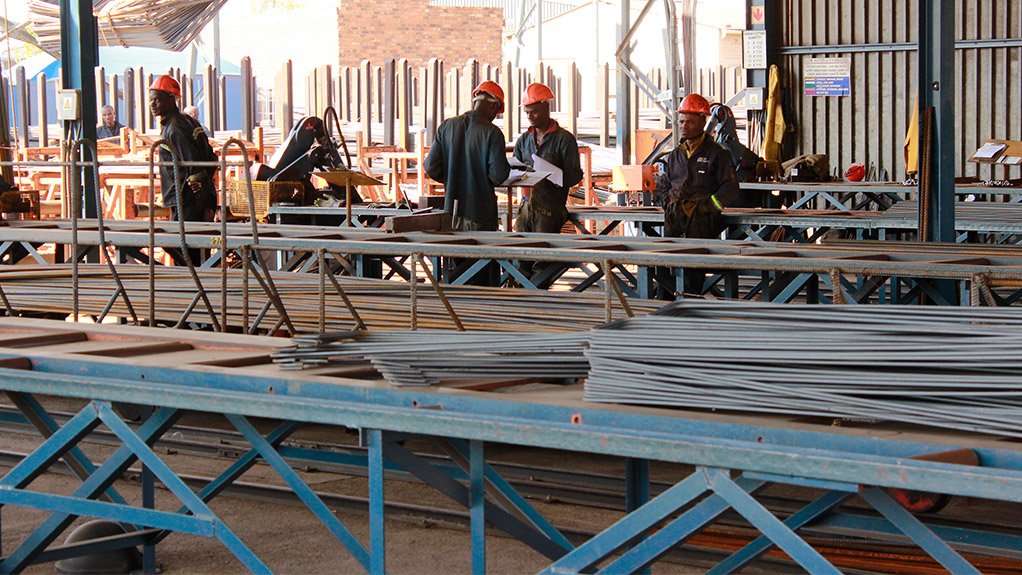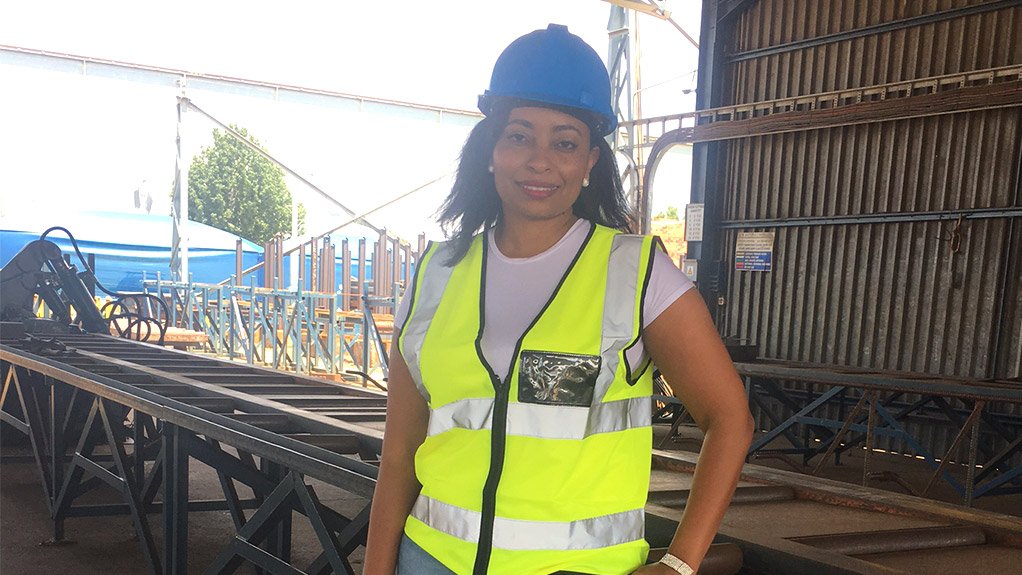Despite the difficult economic climate South Africa currently finds itself in, black-woman-owned steel-manufacturing company RSC Avelo, which was officially launched in Roodepoort, Gauteng on Thursday, aims to be a key player in market, according to MD Mayleen Kyster.
“Even though we are in a depressed market, especially from a steel perspective, we plan on sustaining our growth by offering good service to our clients,” she said at the opening event.
Kyster added that the company currently had a sizeable client base, but was going to pursue bigger projects in 2017.
Avelo has been supplying steel to renewable-energy wind projects throughout the country, and has supplied thousands of tons of steel to bridges and construction projects.
Kyster further noted that, when it comes to jobs on Avelo's sites, the company uses subcontractors, giving small businesses the opportunity to employ people. She stated that Avelo has 25 full-time employees.
“Going into the future, we plan on adding two additional branches in two different provinces,” she said.
Speaking to Engineering News Online on the sidelines of the event, Steel and Engineering Industries Federation of Southern Africa (Seifsa) CEO Kaizer Nyatsumba noted that the metals and engineering sector in South Africa was in the midst of a crisis.
“Our economy has been seriously underperforming and South Africa needs a number of infrastructure development projects to move the metals, engineering and steel subsectors forward,” he said, adding that Seifsa wants the strategic projects identified in the National Development Plan to be implemented, as it would stimulate the economy.
Nyatsumba further noted that the construction and mining sectors have also been underperforming, which has had a negative impact on the metals and engineering industries.
“The steel subsector has been seriously underperforming owing to a lack of demand domestically,” he said.
Nyatsumba mentioned that small businesses like Avelo were an important part of the economy and that, for a country to achieve its economic potential, it needed smaller companies to be supported by larger players in the industry, as well as by government procurement.
“We welcome the official launch of Avelo today. We are pleased that it is a black-woman-owned business because this is not a sector that is known for transformation,” he said.
Also speaking at the event, economic adviser to the Gauteng provincial government Phelisa Nkomo noted that the Department of Trade and Industry’s Industrial Policy Action Plan (Ipap) had identified the metals industry as a sector that was vital to sustainable economic and employment growth.
“This industry is expected to play a major role in supplying the massive infrastructure development programme – launched by the government to stimulate the local economy – while creating significant numbers of new and sustainable skilled jobs,” she said.
Nkomo highlighted metal products manufacturing as one of the most important industries in Gauteng’s 11 industrial priority sectors, adding that a third of the national output of metal products is manufactured in Ekurhuleni.
“The steel industry is an important role-player in the input supply of construction, mining, capital equipment and machinery development. In its own right, it also makes a significant contribution to the economy, especially with respect to employment creation, growth and transformation.”
She further noted that government had ambitious infrastructure plans, prompting government to forecast an average yearly industry value growth rate of 4% to 2019.
“Sub-Saharan Africa will be a global economic growth outperformer to 2019, increasing regional metal export opportunities in the coming years. South African exports will be assisted by a weaker currency than in recent years,” Nkomo said.
She also pointed out that, once delays abate and plans are implemented fully, the metals industry could see stronger demand.
Nkomo stated that black-owned businesses in the steel manufacturing sector should strive for higher-value addition and diversification, which could further benefit from a government funding programme for black industrialists and women in business.
Edited by: Samantha Herbst
Creamer Media Deputy Editor
EMAIL THIS ARTICLE SAVE THIS ARTICLE
To subscribe email subscriptions@creamermedia.co.za or click here
To advertise email advertising@creamermedia.co.za or click here















